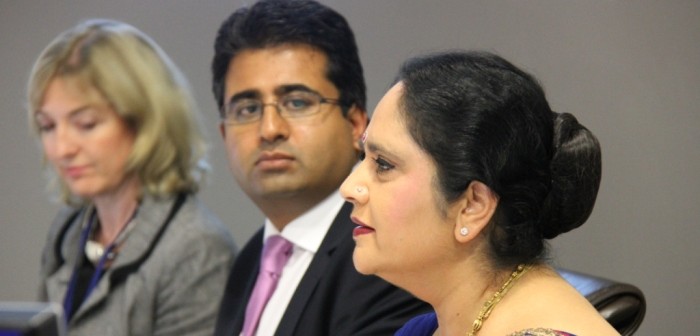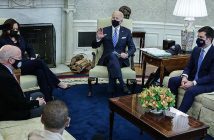India Inc in partnership with Deloitte LLP hosted the first Education Investment Conclave, with guests from both Indian and UK education providers, suppliers, consultants and educationalists, in London on 2nd and 3rd October 2013.
The conclave provided a 360-degree view of the various challenges faced by the sector and explored the implications of new rules in the Indian education market which include the University Grants Commission (UGC) Act that paves the way for the world’s top 400 foreign educational institutions (FEIs) to set up campuses in India with the authority to issue degrees to the students. The opening night of the conclave saw a panel debate with Sudhakar Ram, CEO of Mastek; Asha Khemka OBE, Principal and Chief Executive of West Nottinghamshire College, Julie Mercer, Head of Education at Deloitte and was moderated by Manoj Ladwa, Founder of India Inc and Chief Executive, MLS Chase.
Education has been traditionally classified as a not-for-profit venture in India but as the country struggles with its massive need for a skilled workforce capable of competing on the global stage, there has been an inevitable clash of ideas. Until now, an FEI had to join hands with a local education provider to offer courses in India, and the degrees were not considered at par with a foreign degree. However, these FEIs are still expected to function as not-for-profit entities when in India. While some experts argue foreign providers will still be attracted by the sheer size of the Indian market, there are others who fear there may not be enough takers.
The Confederation of Indian Industry (CII), among the strategic partners of the conclave, has broadly welcomed the HRD ministry’s move requesting the Department of Industrial Policy and Promotion and the Department of Economic Affairs to permit foreign universities to open their campuses in the country as companies under the Companies Act. Dr Naushad Forbes, chairman of CII’s National Higher Education Committee and Director, Forbes Marshall, said: “It shows the vision of Dr Pallam Raju [HRD minister], in tackling the huge opportunity that exists for the country. CII had welcomed the Foreign Education Providers Bill when it was first introduced in Parliament and it welcomes the ministry taking it forward through the present proposal. The enabling provisions created through this move will be a step in the right direction. It will create the necessary capacity for access to quality education for more students in India.”
He also points to the weakening of the rupee and the resultant escalation in the cost of higher education abroad, which will make the efforts of the ministry in bringing foreign campuses closer to the reach of Indian students even more meaningful. The entry of leading foreign universities can do much to address the number one problem of India’s higher education system – the availability of qualified faculty.
Visit www.indiaincorporated.com/education.html for further information.







